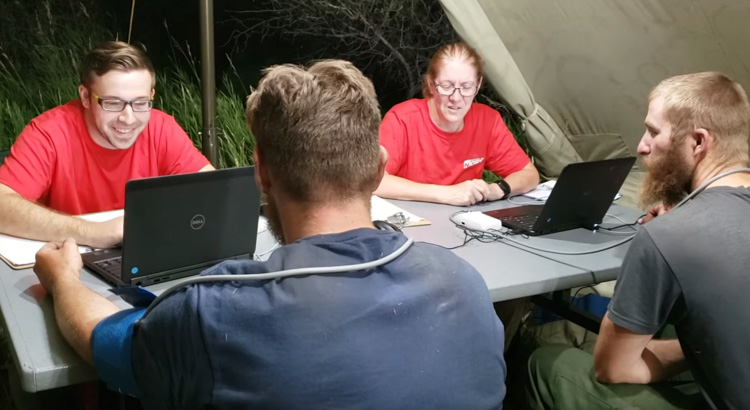
This is the second year of a multi-year study that is following six crews and taking health data from them on fires as well as at the beginning and end of the fire seasons.
The video provides a brief overview of this new approach to examine the potential health effects that wildland firefighters may experience working on wildland fires. This effort is a collaboration between the National Institute for Occupation Safety and Health (NIOSH), the U.S. Forest Service, and the National Park Service. As you will see in the video, a NIOSH team actually goes into the field on a wildfire in Idaho to test members of the Sawtooth Interagency Hotshot Crew on potential impacts to their overall health, including effects to their hearts, lungs, kidneys, and hearing. As results of this effort are made available, the Wildland Fire Lessons Learned Center will share them.

Maybe Forestry technicians will finally be classified as firefighters to be able to obtain federal benefits for there bodies sacrafice
Way back in 1988 the hot shot crew I was on, while working on the Yellowstone fires, was studied for lung issues. They took instruments into the field with us for one day. The crew considered it a light smoke day. The people doing the study reported back as that day represented a ‘two pack a day habit ‘ level of smoke inhalation. The entire crew went to the hospital for bronchitis upon return to our duty station.
Curious to see what they learn.